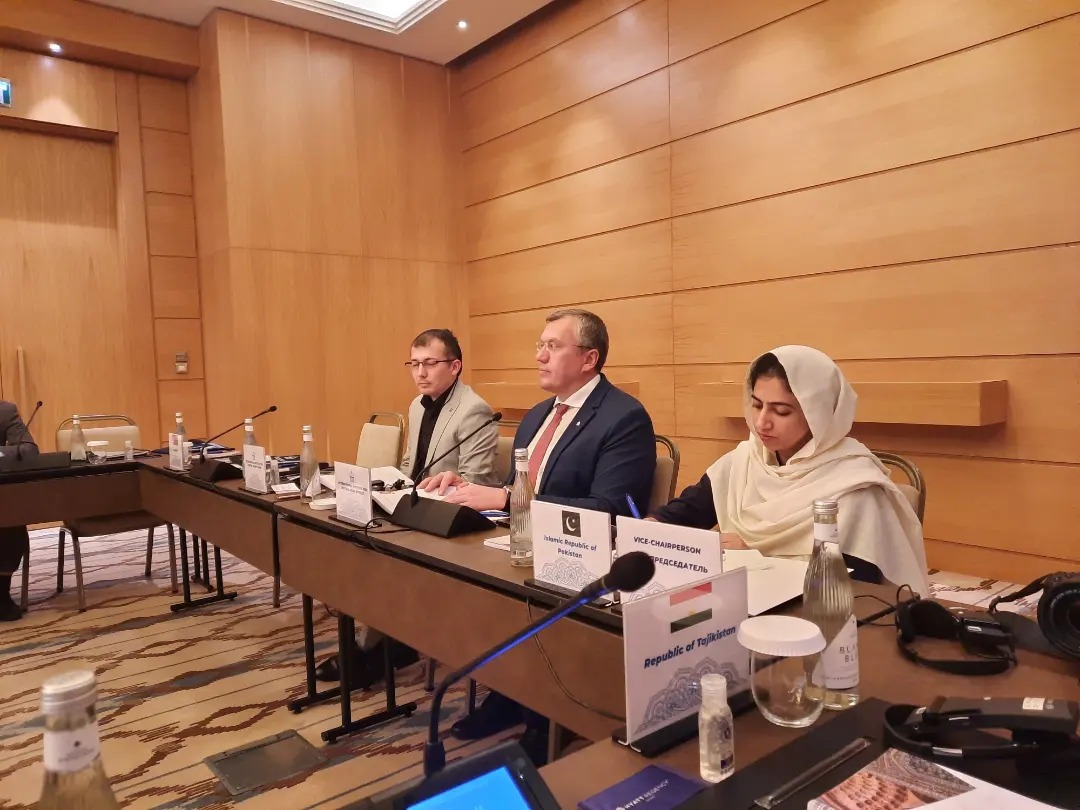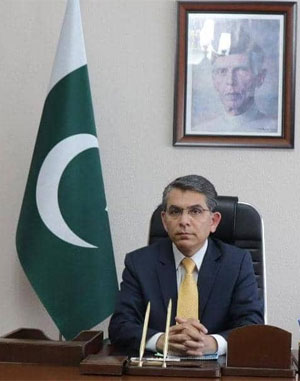Important Links in Pakistan
Important Links in Uzbekistan
What Is Jammu & Kashmir Dispute?
Jammu & Kashmir: An Occupied Territory & A Human Rights Crisis
The Jammu and Kashmir State continues to be occupied by India since 1947. It represents an unfinished agenda of the partition of the South Asian subcontinent.
Jammu & Kashmir is also one of the oldest unresolved international disputes on the agenda of the UN Security Council. India has denied Kashmiris their inalienable right to self-determination granted to them by the UN Security Council resolutions (UNSCR).
Self-determination is one of the cardinal principles of international law enshrined in the UN Charter, General Assembly resolutions, basic human rights instruments, and case law of the International Court of Justice.
Apart from these general principles and settled international law and practice, several UN Security Council resolutions have explicitly recognized the right to self-determination of the people of Jammu and Kashmir. Both Pakistan and India have also endorsed the fundamental principle of self-determination of Kashmiris in resolutions of the UN Commission on India and Pakistan (UNCIP).
Security Council resolutions provide that the final disposition of the State of Jammu and Kashmir will be made in accordance with the will of the people expressed through a free and impartial plebiscite conducted under the auspices of the United Nations.
India’s entire claim lies on the dubious “Instrument of Accession” purportedly signed by one man on behalf of millions of his subjects, whose validity is itself highly questionable from factual and legal standpoints. India’s attempts at sham “elections” and “declarations” have been declared null and void by the Security Council resolutions, determining that any unilateral attempt or any action taken by the parties concerned to determine the future shape and affiliation of the entire State of Jammu and Kashmir or any part thereof would not constitute the disposition of the State in accordance with the principle of a free and impartial plebiscite.
UNSC resolutions are immutable. They can be invalidated only by fulfillment of the obligation, consent of the parties or a subsequent resolution or decision of the Security Council. None of this has happened with respect to Jammu and Kashmir. These obligations arising from the Security Council resolutions on this dispute cannot be unilaterally annulled or renounced by India citing its Constitution and internal laws.
Indian illegally occupied Jammu and Kashmir is the most militarized zone in the world, where close to 900,000 security forces have been deployed by India to curb the legitimate struggle of the Kashmiris for their inalienable right to self-determination. These military deployments are in breach of Security Council resolutions as well as bilateral agreements. The sheer size, deployments and repressive actions of the Indian forces in the occupied Jammu and Kashmir amounts to foreign and colonial occupation.
Human Rights Crisis in Occupied Jammu & Kashmir
For the past 7 decades, India’s occupation forces have resorted to ruthless oppression, committing grave and systematic human rights violations against unarmed Kashmiris in Indian Illegally Occupied Jammu and Kashmir (IIOJ&K).
The scale and severity of these abuses have been documented by international media, civil society and human rights organizations. The egregious violations committed prior to August 5th 2019 have been detailed in the two Kashmir Reports of 2018 and 2019 by the UN Office of the High Commissioner for Human Rights (OHCHR).
While the political history of Jammu and Kashmir remained mostly non-violent, the persistent refusal by India to grant the people of Jammu and Kashmir their right of self-determination, as promised in the UN Security Council resolutions, led to popular alienation. Despite the legitimacy of their cause, duly recognized by the Security Council, the struggle for self-determination of the Kashmiri people has been brutally suppressed by the Indian occupying forces in blatant violation of international law and the relevant General Assembly resolutions. India has misused its “counter-terrorism” laws to perpetuate its illegal occupation in Jammu and Kashmir and equate Kashmiris’ just struggle with “terrorism”.
The human rights situation in IIOJ&K has developed into a crisis after the illegal and unilateral actions undertaken by India on August 5th, 2019.
Post 5 August 2019, the UN High Commissioner for Human Rights expressed “deep concern about the impact of recent actions by the Government of India on the human rights of Kashmiris, including restrictions on internet communications and peaceful assembly, and the detention of local political leaders and activists”.
The High Commissioner’s Spokesperson expressed extreme concern over the continued deprivation of the wide range of human rights of the Kashmiri people by India and urged full restoration of the denied rights. The OHCHR also drew attention to “a number of the most serious underlying issues which remain to be addressed, including impunity for past violations by Indian security forces, were outlined in the second of two reports published by the UN Human Rights Office in July 2019, as well as in the initial remote monitoring report of June 2018”.
On 22 August 2019, the UN human rights experts called on the Government of India to end the crackdown on freedom of expression, access to information, and peaceful protests imposed in Indian Occupied Jammu & Kashmir. The UN experts noted, “the shutdown of the internet and telecommunication networks, without justification from the Government, are inconsistent with the fundamental norms of necessity and proportionality”, adding that “a blackout is a form of collective punishment of the people of Jammu and Kashmir, without even a pretext of a precipitating offense.”
On 4 August 2020, on completion of one year of India’s illegal and unilateral actions, the UN human rights experts once again “called on India and the international community to take urgent action to address the alarming human rights situation” in IIOJ&K. They described the human rights situation in the occupied territory to be in “free fall” and asked, “the international community to step up if India does not take any genuine and immediate steps to resolve the situation, meet their obligations to investigate historic and recent cases of human rights violations and prevent future violations”.
The United Nations, parliaments, international media and global civil society continue to highlight the grave and systematic violations of human rights by Indian security forces in the occupied territory. The Organization of Islamic Countries (OIC) and its Independent Permanent Human Rights Commission (IPHRC) have termed IOJ&K as “world’s largest prison”.
A snapshot of the present phase of human rights crisis in IIOJ&K, unleashed since August 5, 2019 is as follows:
India has imposed one of the longest military siege and incarceration over more than 8 million people.All fundamental rights and freedoms remain in abeyance.The impunity laws including Armed Forces Special Powers Act and Public Safety Act, are being used callously by the Indian occupation forces to carry out gross human rights abuses.A communications and internet blockade is giving effect to a virtual siege.Muslims have been denied Friday and Eid prayers violating their fundamental freedom of religious or belief.Doctors and emergency personnel are being regularly harassed and there are reports of acute shortage of medical supplies.Senior Kashmiri leadership is languishing in jails, even during COVID-19 emergency.Thousands of youth have been abducted, enforced disappeared and put in prisons across India, with families having no access to their children.Reprisals especially against journalists and human rights defenders, to the extent of extrajudicial killings, are endemic across IOJ&K.Unlawful Activities (Prevention) Act (UAPA) is being used to silence the human rights defenders. Kashmiri media houses are being vandalized and journalists being killed, beaten or being tried under UAPA.Rape is being employed as an instrument of state policy by India to terrorize the Kashmiris. Women and girls regularly face harassment including sexual violence.State-terrorism is being inflicted on the local population through fake “encounters” and indiscriminate use of pellet guns and live ammunition against unarmed civilians including women and children.The use of excessive and indiscriminate force by the Indian security forces has resulted in extra-judicial killing of more than 200 Kashmiris and injuring of thousands.Cordon and Search Operations are a regular feature, in which innocent civilians are being tortured, intimidated, harassed, many families being rendered homeless and without shelter, as well as women and girls facing sexual violence.Villages have been ransacked and being tortured collectively and individually.
Further perpetuating its illegal and colonial occupation, India has taken several measures to permanently alter the geographic and demographic contours of the territory, in clear breach of the Security Council resolutions.
In fact, India’s unilateral actions of 5 August 2019 to deprive the occupied territory of its “special status” have removed the fig leaf to justify India’s presence in Jammu and Kashmir. The sole purpose is to turn the indigenous Muslim majority into a minority through “demographic flooding”.
India has tried to justify these actions as a purely “domestic” issue. However, the UN Secretary General, in his statement of 8 August 2019, categorically stated that the “the position of the United Nations on this region is governed by the Charter of the United Nations and applicable Security Council resolutions.”
The Jammu and Kashmir dispute cannot be forgotten. Its people are determined to secure their inalienable right to self-determination. Their struggle is a just struggle for a fundamental right guaranteed under the UN Charter, international law and the resolutions of the Security Council. Pakistan is a Party to the dispute. It will fulfill its obligations as a Party. The Government and people of Pakistan remain steadfast in their adherence to the Security Council resolutions and in their strong support for the full respect and restoration of the rights and freedoms of the Kashmir people.
As the custodian of global human rights principles and agenda, the UN Human Rights Council (HRC) has a special responsibility to address the human rights dimensions of the occupied people of Jammu & Kashmir. The HRC and its members must take cognizance of this crisis on the basis of human rights merits and objective criteria and to hold India accountable for its impunity and defiance of international law.
- Embassy Team
Ambassador
H.E. Mr. Ahmed Farooq
(+998-71) 2309863
Political Wing
Mr. Muhammad Ramzan
Deputy Head of Mission/ Head of Chancery
(+998-71) 2309866
Ms. Tuba Asif
Second Secretary
(+998-71) 2309862
Office of the Permanent Representative to RATS SCO
Mr. Faheem-ud-Din Qazi
Permanent Representative to RATS SCO
(+998-71) 2309860
Consular Wing
Mr. Khurram Ali
Counsellor
(+998-71) 2309865
(+998-94) 6484016
Commercial Wing
Mr. Ataullah
Trade and Investment Counsellor
(+998-94) 8045190
Defence Wing
Col. Naveed Ahmad Khan
(+998-71) 2309864
Photo & Video Gallery

Contact Information
Building No. 80-82, Abdulla Avloniy Street, Yakkasaroy Tumani, Tashkent, Uzbekistan


